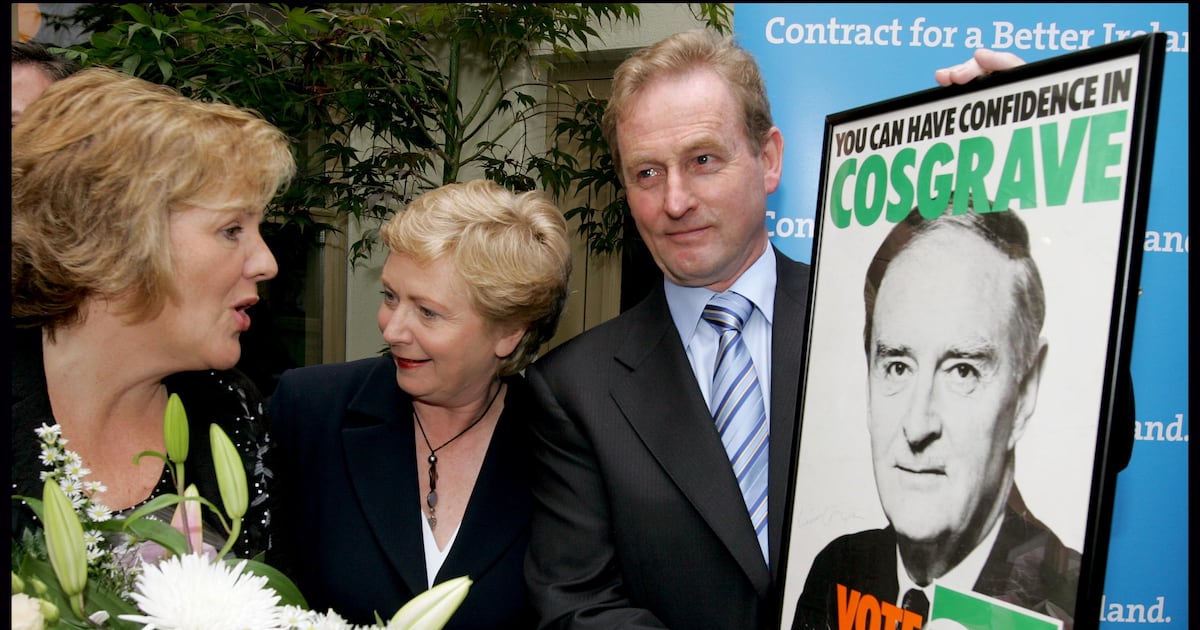Politics
Assessing Fairness in Ireland: Six Decades Since Fine Gael’s Vision

The landscape of wealth distribution in Ireland remains starkly uneven, with the wealthiest 10 percent owning nearly half of the nation’s wealth, while the bottom 50 percent possess less than 10 percent. As the population continues to grow, the challenge of providing adequate housing has become increasingly pressing, with over 15,000 individuals currently residing in emergency accommodation. These statistics raise an essential question: is Irish society fairer in 2025 than it was sixty years ago?
In 1965, Fine Gael introduced the document titled “Towards a Just Society.” This initiative, spearheaded by the late Declan Costello, sought to position the party more to the left, aiming to bridge the ideological divide between its conservative and progressive factions. Costello enlisted Liam Cosgrave, who would later become Taoiseach, to chair the group responsible for the document. In an interview shortly before a debilitating stroke, Costello reflected on the document’s ambition to tackle rampant poverty and promote equality of opportunity, emphasizing the influence of social doctrines outlined in papal encyclicals.
The Just Society document proposed comprehensive economic and social reforms, advocating for the establishment of regional planning boards to address regional disparities. However, the abolition of domestic rates by the Fianna Fáil government in 1977 significantly undermined the autonomy of local authorities, limiting their ability to implement these reforms effectively. Additionally, the document called for a complete reorganization of health services funded through insurance and highlighted the necessity of cooperation with trade unions on incomes policy.
The population of Ireland has nearly doubled since the publication of the Just Society document, growing from 2,877,300 in 1965 to 5,308,039 today. The demographic makeup has also evolved, with 632,000 non-Irish citizens now representing 12 percent of the population. While the overall situation is considerably improved compared to the 1950s and 1980s, challenges persist.
The introduction of free post-primary education in 1967 and Ireland’s entry into the European Economic Community in 1973 marked significant milestones in increasing social and economic opportunities. These changes facilitated access to education for previously marginalized groups and introduced progressive policies, including equal pay for women.
Despite these advancements, achieving a truly just society remains elusive. Policymakers must prioritize the needs of the marginalized over the interests of the middle class. This could involve enhancing support for primary education in disadvantaged areas or reallocating funding away from universally subsidized university education. Currently, students in Ireland pay €3,000 in annual fees, significantly lower than the nearly £10,000 (approximately €11,500) charged in the United Kingdom.
The Just Society document notably overlooked issues related to crime and punishment. Many individuals incarcerated come from deprived backgrounds, while white-collar crime often involves members of the middle class, including legal professionals. Reports by figures such as Mr. Justice Dermot Kinlen and T.K. Whitaker have highlighted the shortcomings of the penal system in reflecting a just society.
Creating a just society requires ongoing commitment, with both state and voluntary contributions playing vital roles. Community members can engage in initiatives like prison visitation or support for long-term patients lacking family. Such actions emphasize the importance of compassion and solidarity in the quest for social equity.
Ultimately, the legacy of the Just Society document continues to provoke reflection on the fairness of Irish society. As the nation navigates its evolving challenges, the principles outlined in 1965 may serve as a guiding framework for future reforms aimed at achieving greater equity and opportunity for all citizens.
-

 Top Stories2 months ago
Top Stories2 months agoTributes Surge for 9-Year-Old Leon Briody After Cancer Battle
-

 Entertainment3 months ago
Entertainment3 months agoAimee Osbourne Joins Family for Emotional Tribute to Ozzy
-

 Politics3 months ago
Politics3 months agoDanny Healy-Rae Considers Complaint After Altercation with Garda
-

 Top Stories3 months ago
Top Stories3 months agoIreland Enjoys Summer Heat as Hurricane Erin Approaches Atlantic
-

 World4 months ago
World4 months agoHawaii Commemorates 80 Years Since Hiroshima Bombing with Ceremony
-

 Top Stories2 months ago
Top Stories2 months agoNewcastle West Woman Patricia Foley Found Safe After Urgent Search
-

 Top Stories4 months ago
Top Stories4 months agoFianna Fáil TDs Urgently Consider Maire Geoghegan-Quinn for Presidency
-

 World4 months ago
World4 months agoGaza Aid Distribution Tragedy: 20 Killed Amid Ongoing Violence
-

 World4 months ago
World4 months agoCouple Convicted of Murdering Two-Year-Old Grandson in Wales
-

 World4 months ago
World4 months agoAristocrat Constance Marten and Partner Convicted of Infant Murder
-

 Top Stories3 months ago
Top Stories3 months agoClimbing Errigal: A Must-Do Summer Adventure in Donegal
-

 Top Stories3 months ago
Top Stories3 months agoHike Donegal’s Errigal Mountain NOW for Unforgettable Summer Views









